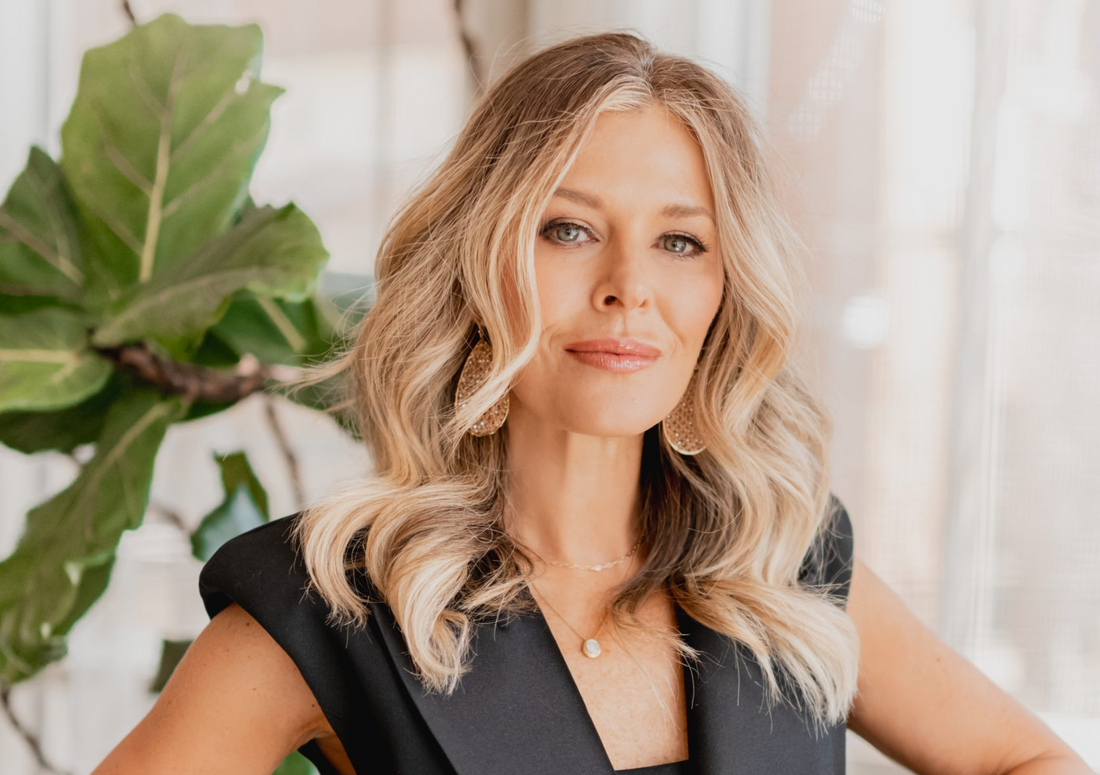A Conversation with Dr. Ginger Wolfe, DC, DABCI and Founder of Wolfe Functional Medicine


In Dr. Wolfe’s own words, “You can really lose yourself in menopause if you are not addressing hormone imbalance.” Here at Quicksilver Scientific, we could not agree more.
We sat down with Dr. Ginger Wolfe, a functional medicine practitioner and women’s health advocate to discuss how she got started in medicine, the primary concerns she addresses from her patients, and why hormonal health matters every day, not just Menopause Awareness Month!
Keep reading to learn more about Dr. Wolfe’s personal journey, her mission to promote awareness of women’s health and valuable tips for those seeking support.
Tell us a little bit about what made you decide to get into medicine?
I remember wanting to be a doctor from the time I was a little girl. I think I was born a caretaker! I was also fortunate to grow up in a home where my mother always looked at supplementation for both prevention and treatment, which helped to frame my perspective on health care at a very young age. During my teens, I struggled with my own health challenges and was repeatedly told by doctors that it was “just stress”. The lack of attention and concern that I received as a patient definitively drove me to explore medicine as a career. I wasn’t getting the answers I needed from my own doctors, so I decided to become one myself.
What led you into functional medicine and women’s health?
My experience as a sick teenager definitely catapulted me in the direction of functional medicine. As strange as it may sound, researching topics like physiology, immunology, and supplements became my late-night obsession early on in my career. I was obsessed with the “why” behind my patients’ ailments. As my practice grew, I became shockingly aware of the lack of treatment options with respect to women’s health; specifically, women’s hormone health. This ultimately fueled my passion for helping women suffering with hormonal imbalance and other female related health concerns.
What are the primary concerns you’re seeing with your patients?
Our patients come to us because they want answers. Oftentimes they’re told that nothing is wrong, but they know that something is definitely not right! Immune dysregulation, blocked detox pathways, high levels of inflammation, oxidation, and inadequate methylation are all common underlying problems that lead to larger, more significant health problems. With respect to women’s health and hormonal imbalance; androgen dominance, estrogen dominance, adrenal fatigue, high cortisol, fertility problems, menopause and perimenopause are all very much big concerns.
You’ve done a great job building a successful practice, what tips do you have for other practitioners?
First, thank you. That’s such a huge compliment! I think the most important thing you can do to build a successful practice is to offer consistent quality care and a consistent superior experience for patients. Leave your personal problems at the door when you walk into your office; that space is solely for your patients, and they deserve your full attention. Operate from a place of authenticity and be willing to explore what each individual patient needs. Listen, connect the dots, and give patients answers as to why they are having a health problem. Caring and intention go a long way!
You work with women suffering from the vestibular disorder, MdDS. Can you explain what this is and why you tend to see this in a lot of your patients?
Mal de Débarquement Syndrome (MdDS) is a rare neurological condition that typically occurs after a person has been on a boat, ship, or other forms of travel involving passive motion, but it can also occur spontaneously. People with MdDS suffer with a prolonged land sickness sensation. It differs from vertigo in that it’s a rocking vs. spinning sensation and it can also involve a host of other feelings such as gravitational pull in different directions, headaches/head pressure, or the sensation of walking on a trampoline. It can be absolutely torturous and debilitating for patients, and currently, there is no known cure.
I’ve made it my mission to help patients with this condition as I, myself have suffered from MdDS and have recovered. Taking a Functional Medicine approach to MdDS has helped me to uncover genetic, hormonal, and methylation consistencies in patients with this disorder. Because of this, I’ve been able to guide many MdDS patients to remission by way of optimizing their detox pathways, suggesting the appropriate supplements, advocating for specific medications, and implementing the exercises and tools that I utilized myself. Discovering these consistencies has helped me to understand why someone might get MdDS and then reverse engineer a treatment plan to help lead them toward remission.
Where do you think the women’s health industry is “missing the mark” in women’s health? Alternatively, where do you think the industry is heading in the right direction?
Women’s health has been a dramatically understudied field and historically, women's health has received less funding and attention in research than compared to other areas. More specifically, women’s hormonal health is not prioritized or acknowledged on a routine basis. Considering that hormonal health can affect women of all ages, we should be more aware, educated, and equipped to support hormonal imbalance and hormone related health problems. Patients with hormonal imbalance or those in the throes of perimenopause/menopause are often dismissed or given very few options to help resolve these issues. Furthermore, the lack of research surrounding bioidentical (vs. non bioidentical) hormones has created misconceptions by both practitioners and patients, rather than providing empowering solutions.
Thanks to the internet and the modern progression of healthcare, many women are taking their health into their own hands and learning about the resources that are available to them. This is forcing the industry as a whole to listen and provide the appropriate care. Women are becoming more aware with respect to their own hormonal health and want alternative options to birth control pills or partial/full hysterectomies. Additionally, bioidentical hormones are becoming more mainstream, and more women are beginning to understand that bioidentical hormone replacement therapy can be beneficial and supportive for perimenopause and menopause. I think we’re becoming increasingly aware of how important hormones are for our vitality and longevity.
When do you think women should consider hormone replacement options?
This really depends on each woman’s individual hormone health. Some women may benefit from short term hormone replacement therapy even in their 20’s and 30’s. I mention this because oftentimes, as practitioners, we don’t even consider this! With respect to perimenopause and menopause, I think the earlier the better when starting bioidentical HRT, but it’s never too late to start! It’s not uncommon for women to be entering into perimenopause in their mid to late 30’s, so I encourage women to take a proactive approach and test their hormone levels annually, if not biannually.
How important is regular detoxification support for women’s health?
Regular detoxification support is extremely important for women’s health! As a women’s health practitioner, I always implement an optimization protocol for detox pathways. When we think of detoxification, we don’t always think about our hormones; but our liver has to break down, metabolize, and excrete our hormones every day, amongst other things! If our detox pathways are overburdened, it can create a host of health problems and affect several areas of health including immune function, mitochondrial support/energy levels, brain function and clarity, hormone health, fertility, acne and skin conditions, digestive problems and much more! Overall, regular detoxification is vital for several bodily functions and optimal women’s health.
As a passionate and successful female business owner, what are some of your secrets for maintaining a balanced mind and vibrant health?
Prioritizing self-care is probably the most important thing I do to maintain my health. This includes taking part in regular exercise, implementing mindfulness, getting adequate sleep, keeping healthy relationships, traveling, sipping on a nice glass of wine now and again, and making sure I always keep something fun and exciting on my schedule! Currently, I’m working on my delegating skills so that I can continue to maintain a life that’s filled with a healthy balance of things that are good for me, my business and my soul.
What advice do you have for those women struggling to find balance in their lives?
I think as women we tend to over-do and often end up in a complete state of burn-out. It takes a firm commitment to yourself and your own health to create boundaries and implement a plan to prevent this. I find it helpful to write down my goals every morning and then reflect on them every night before I go to bed. I make that list attainable, so I feel accomplished. I schedule “me” time in order to make it happen. Remember that if you aren’t taking care of yourself, you won’t be able to show up for others. It’s okay to put you first!


